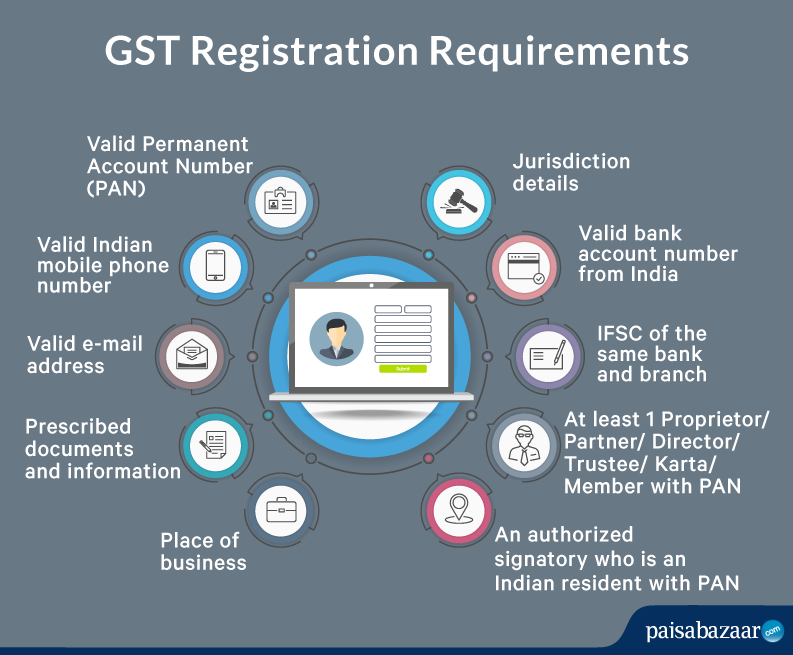Understanding the Conveniences of the very best GST Registration Services in Singapore
From Begin to Complete: The Ultimate Roadmap to GST Registration for Companies Looking For Financial Stability
Navigating the complexities of Item and Provider Tax (GST) enrollment is a vital action for services pursuing economic security. From understanding the essential concepts of GST to following post-registration standards, the procedure can seem intimidating initially glance. Nevertheless, breaking down the roadmap into workable actions can streamline the registration trip for organizations wanting to improve their financial standing. Allow's explore the crucial parts that compose this best roadmap and discover just how each phase adds to laying a solid structure for financial success.
Recognizing GST Essentials
Diving into the essential principles of Product and Services Tax Obligation (GST) is necessary for gaining a detailed understanding of its implications on businesses and the economic situation. GST is a value-added tax obligation levied on most goods and services for residential intake. It has changed multiple indirect taxes that existed in the pre-GST age, streamlining the tax obligation framework and improving convenience of doing company in India. Under the GST system, both goods and services are strained at a certain rate, which is identified based upon their classification. If their annual turn over exceeds the threshold limit set by the government, services are needed to sign up for GST. Input Tax Credit History (ITC) is a considerable feature of GST, enabling businesses to declare credit score for tax obligations paid on inputs, lowering the total tax burden. Understanding the essentials of GST is vital for companies to adhere to tax guidelines, manage their finances efficiently, and contribute to the country's financial development by joining a clear tax obligation system.
Qualification Standards for Registration
As of the existing laws, the threshold limit for GST enrollment is a yearly accumulation turnover of 40 lakhs for services operating within a state, except for special classification states where the limitation is 20 lakhs. Additionally, specific businesses are required to register for GST irrespective of their turnover, such as interstate suppliers, laid-back taxed persons, and businesses accountable to pay tax under the reverse charge system. It is critical for organizations to thoroughly analyze their turn over and purchase types to establish their GST registration obligations precisely.
Documents Needed for Registration
Having actually met the eligibility criteria for GST enrollment, companies must currently ensure they have the requisite documents in place to continue with the registration procedure successfully. The files required for GST enrollment commonly consist of proof of organization constitution, such as partnership act, enrollment certificate, or consolidation certification for different kinds of organizations. Additionally, companies need to give records establishing the principal location of service, such as a rental arrangement or electrical power expense.
Step-by-Step Registration Process
Beginning the GST enrollment procedure involves a collection of organized actions to make sure a certified and smooth next enrollment for services. The very first step is to see the GST portal and fill up out the registration form with exact information of the service entity. Following this, the candidate obtains a Momentary Referral Number (TRN) which is utilized to return to the application procedure if it's not completed in one go.
Next, all needed records according to the checklist supplied by the GST portal demand to be posted. These files generally consist of proof of business address, registration and identity proofs of promoters, financial statements, and service entity's frying pan card.

Post-Registration Conformity Standards

Conclusion
To conclude, organizations looking for financial stability has to understand the basics of GST, meet qualification criteria, collect Continue essential documents, follow the detailed registration process, and abide with post-registration standards - Best GST registration services in Singapore. By adhering to these steps, businesses can ensure compliance with tax obligation policies and preserve monetary security in the future
In addition, certain organizations are needed to sign up for GST irrespective of their turnover, such as interstate distributors, casual taxed persons, and services accountable to pay tax obligation under the reverse fee mechanism.Having actually met the qualification criteria for GST registration, organizations have to currently guarantee they have the requisite papers in area to continue with the registration procedure efficiently. The records needed for GST registration typically consist of proof of business constitution, such as collaboration act, registration certificate, or unification certification for various types of companies. Furthermore, businesses need to provide files establishing the principal place of service, such as a rental contract or electrical energy costs.Starting the GST registration process entails a collection of organized actions to ensure a certified and smooth registration for organizations.